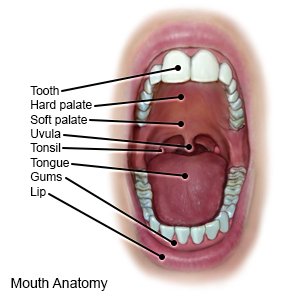Parotidectomy
Medically reviewed by Drugs.com. Last updated on Aug 4, 2025.
What do I need to know about a parotidectomy?
A parotidectomy is surgery to remove part or all of your parotid gland. Your parotid glands are found in your cheeks, over your jaw, and in front of your ears. They release saliva into your mouth through the parotid duct.
 |
How do I prepare for surgery?
- Your surgeon will tell you how to prepare. He or she may tell you not to eat or drink anything after midnight on the day of surgery. Arrange to have someone drive you home from surgery.
- Tell your surgeon about all medicines you currently take. He or she will tell you if you need to stop any medicine for surgery, and when to stop. He or she will tell you which medicines to take or not take on the day of surgery.
- You may need an ultrasound or CT scan of your parotid gland.
- An IV will be put into a vein. You may get liquid or medicine through the IV.
- General anesthesia will be given to keep you asleep and free from pain during surgery. Anesthesia may be given through your IV. You may instead breathe it in through a mask or a tube placed down your throat. The tube may cause you to have a sore throat when you wake up. Tell your surgeon if you or anyone in your family had a problem with anesthesia.
What will happen during surgery?
- An incision will be made above your ear and along your hairline to remove part of your parotid gland. A larger incision will be made above your ear and along your jaw if all of the gland is removed. Your surgeon may make another incision in your neck to remove any growth that has spread there.
- One or more drains may be placed in your wound to remove blood and extra fluid. A muscle flap may be needed to close the incision if it is large. A muscle flap is a piece of muscle taken from another body area.
- Your incision will be closed with stitches or staples and covered with a bandage.
What should I expect after surgery?
You will be taken to a room to rest until you are fully awake. Healthcare providers will monitor you closely for any problems. Do not get out of bed until your healthcare provider says it is okay. When your healthcare provider sees that you are okay, you will be able to go home or be taken to your hospital room.
- A drain may be placed to remove blood or extra fluid from the surgery area.
- Pain medicine may be given.
What are the risks of a parotidectomy?
You may bleed more than expected or develop an infection. Your facial nerves and muscles may be damaged. You may not be able to move parts of your face. You may have bruising and pain in your face and neck. You may have a dry mouth, trouble chewing, or you may sweat when you eat. You may have numbness or tingling around your ear. You may develop a large scar. An abnormal opening may form near your wound and cause saliva to leak out.
Care Agreement
You have the right to help plan your care. Learn about your health condition and how it may be treated. Discuss treatment options with your healthcare providers to decide what care you want to receive. You always have the right to refuse treatment. The above information is an educational aid only. It is not intended as medical advice for individual conditions or treatments. Talk to your doctor, nurse or pharmacist before following any medical regimen to see if it is safe and effective for you.© Copyright Merative 2025 Information is for End User's use only and may not be sold, redistributed or otherwise used for commercial purposes.
Further information
Always consult your healthcare provider to ensure the information displayed on this page applies to your personal circumstances.
